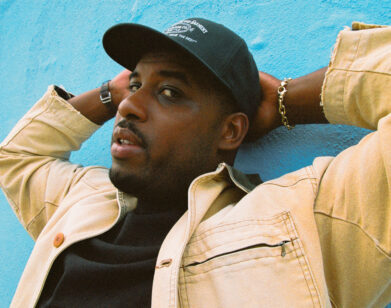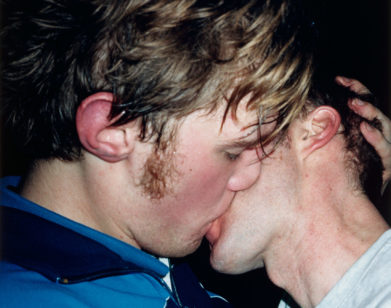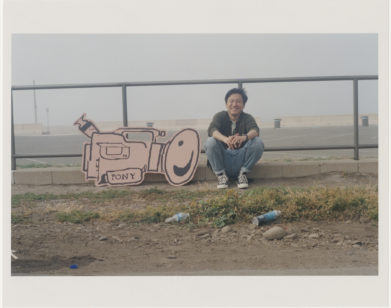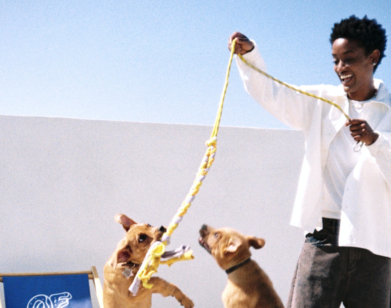music!
Earl Sweatshirt Tells Ta-Nehisi Coates About His Cultural Trust Fund
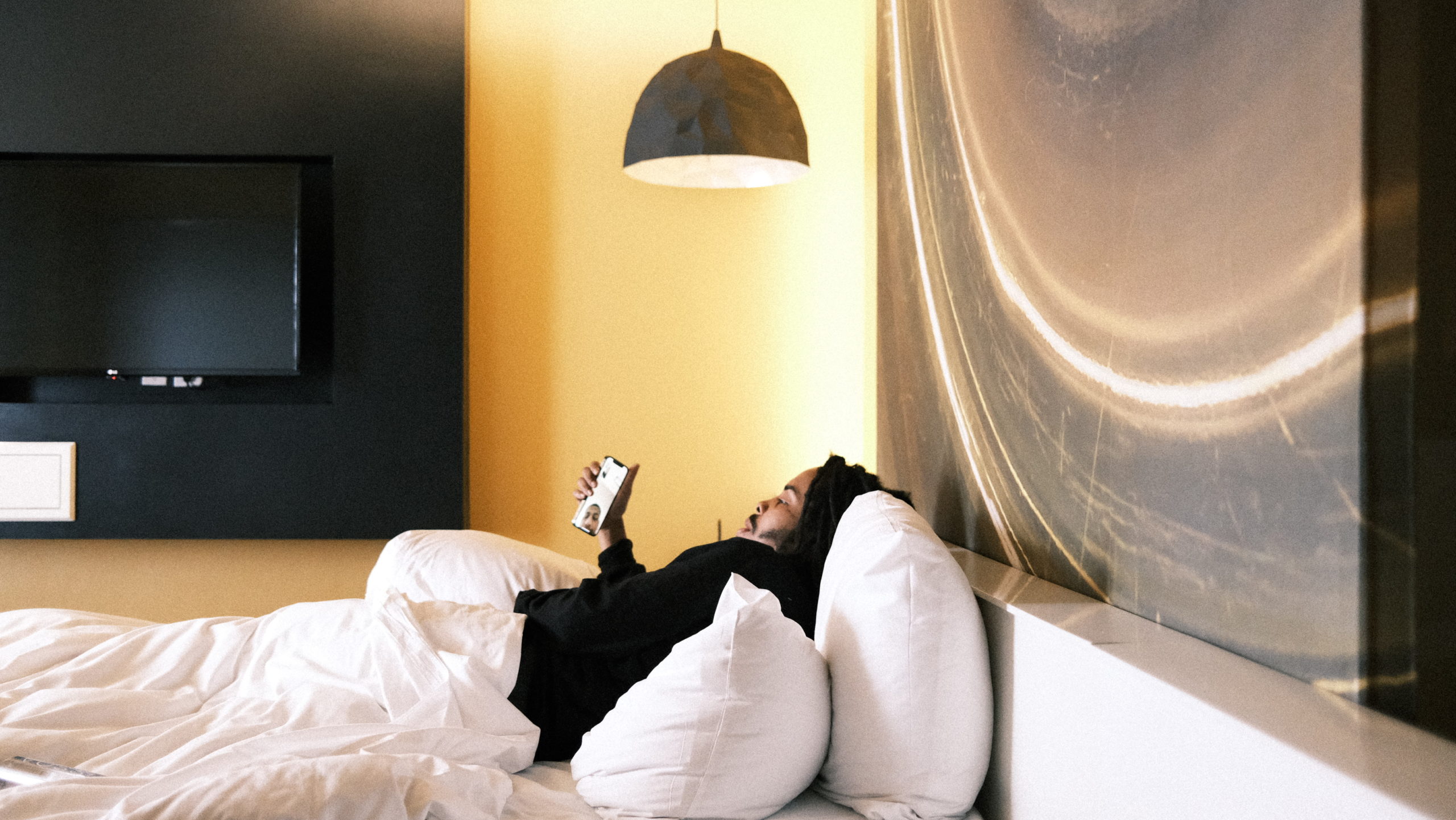
Earl Sweatshirt. Photos by Alberto Reyes.
It’s not everyday you turn 28, but for Earl Sweatshirt, it’s more than just an annual milestone. The Los Angeles-based rapper—born Thebe Neruda Kgositsile—recently rang in his birthday, and the release of his latest album, Sick, after a show in New Orleans, and spent the following morning in bed (naturally) taking stock. Since releasing his debut mixtape, Earl, as a member of Odd Future at the age of 16, Kgositsile has established himself as a musical unicorn—both an artist’s artist, and one of widespread listener acclaim. Over the past 12 years, Earl has collaborated with the likes of Tyler, The Creator (his fellow Odd Future member), Frank Ocean, Mac Miller, Flying Lotus, and countless other icons of hip-hop’s new vanguard. A wunderkind by all accounts, Kgositsile, now a father himself, has a lot to celebrate—and process. To help him break down the significance of another trip around the sun, Kgositsile called up the National Book Award-winning author Ta-Nehisi Coates (from bed, of course) for a conversation about young fatherhood, aging as a Black man in America, and the bitter taste of good art.
———
TA-NEHISI COATES: So Thebe, how’re you doing man?
THEBE NERUDA KGOSITSILE: It’s a good day!
COATES: Where are you at right now?
KGOSITSILE: I’m in New Orleans bro.
COATES: Okay, so you had a late night?
KGOSITSILE: Yes, I absolutely did. I turned 28 at midnight, man.
COATES: That’s right! Today’s your birthday!
KGOSITSILE: My friends tried to kill me! I made it work though. They were trying to murder me, man.
COATES: [Laughs] Well, congratulations.
KGOSITSILE: I really feel like I’ve made it. 28, that’s a milestone. It’s way different than 21.
COATES: It’s not a small thing. So what comes up for you when you think about that? What’re you feelin’?
KGOSITSILE: I just feel like, I don’t know, there’s a spiritual significance to it that I can’t get into without sobbing. There’s the whole 27 club thing in music, and also, I’ve got a baby now. I feel like I survived the whole goddamn death party, especially with everything going on in the past two years. I feel like I can fully celebrate that I’m alive, it’s beautiful.
COATES: How old is your baby?
KGOSITSILE: Hmm, let’s call it 18 months. What is February subtracted from September?
COATES: You’re gonna kill me on that. Let’s call it 18 months.
KGOSITSILE: About a year and a half.
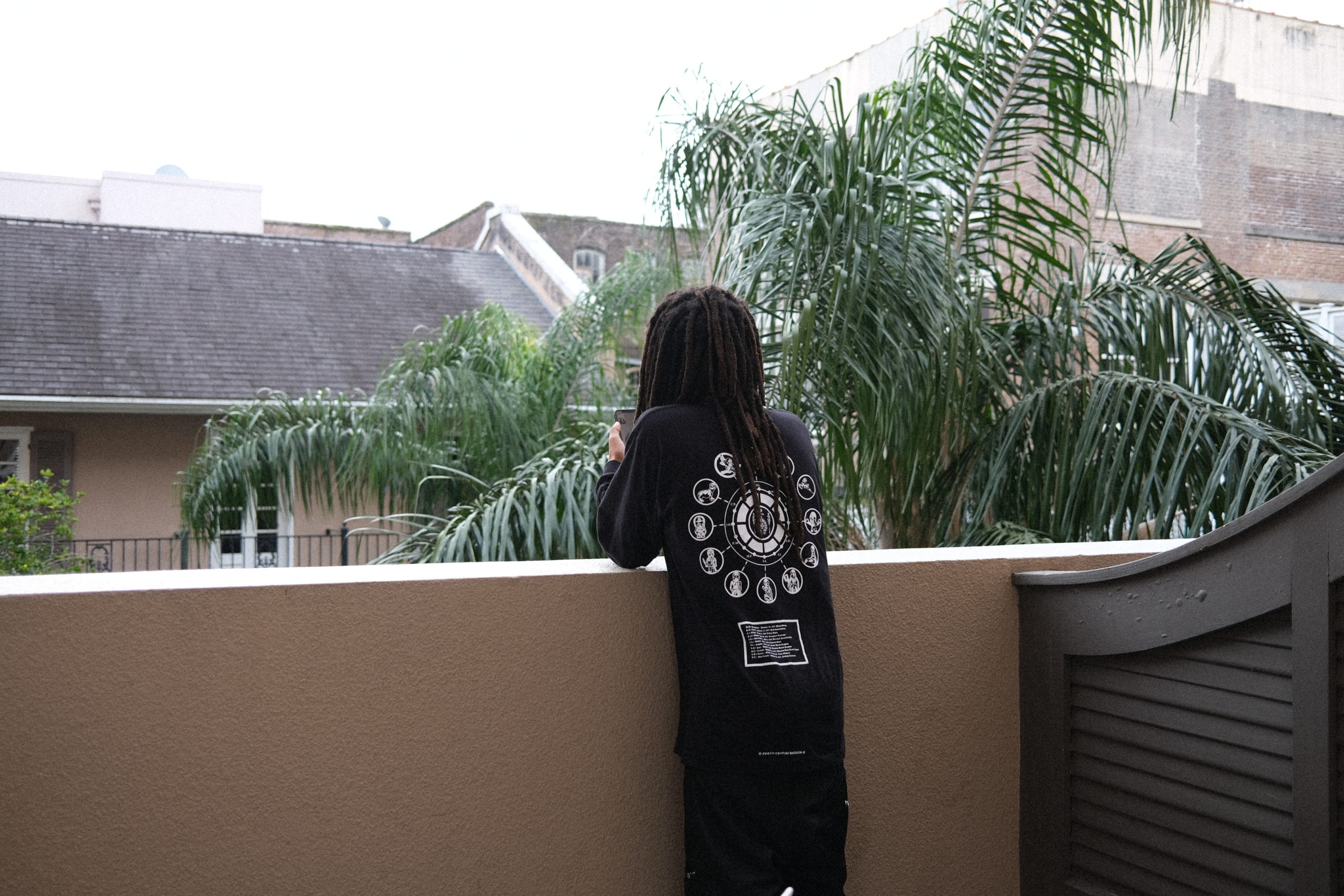
COATES: When my son was born, it aged me 10 years immediately. Everything became much more serious, much more grounded. I mean damn, I guess I was about your age or a little younger—almost 25. But it really altered the trajectory of my 20s, because suddenly there was someone in the world who, if something happened to me, was going to suffer for it.
KGOSITSILE: It’s the craziest shit ever. I’m on tour right now, and I’ll be talking shit like I did before he was born, like, “Let’s go to Jamaica this weekend!” But bro, I’m not doin’ any of that shit.
COATES: [Laughs] Because suddenly you remember, right.
KGOSITSILE: Right, suddenly I’m like, “There is a whole-ass man over there waiting on me, and for the rest of my life I have to worry about him!” Oh my god.
COATES: It’ll never change, and it’s tough explaining that to somebody. I thought of myself as a hard father who was going to raise my son to be independent, and he is, but Samori [Coates’ son] is gonna be 22 this year, and I was telling somebody the other day, “I wake up everyday worried about this dude.” It’s the same way I felt the first time I held him.
KGOSITSILE: Don’t worry about him, I follow him on the internet. That dude is hilarious, man.
COATES: He’s a good dude! But you worry, like, “Is a truck going to hit him?”
KGOSITSILE: That’s what they do to you when they’re born. Suddenly, you stop playing, stop worrying about your self image. I can’t even lie, at first I was mad at my baby’s mom. I was like, “You made this decision.” I really thought I wasn’t ready for it, but I just feel love. I may not be a perfect person, but I love my son. That’s how I know I’m ready for whatever the fuck. I’m tricky, man, I’m like an old dude but I have speed and agility. I feel like that’s perfect for fatherhood. Yo, can I ask you a question?
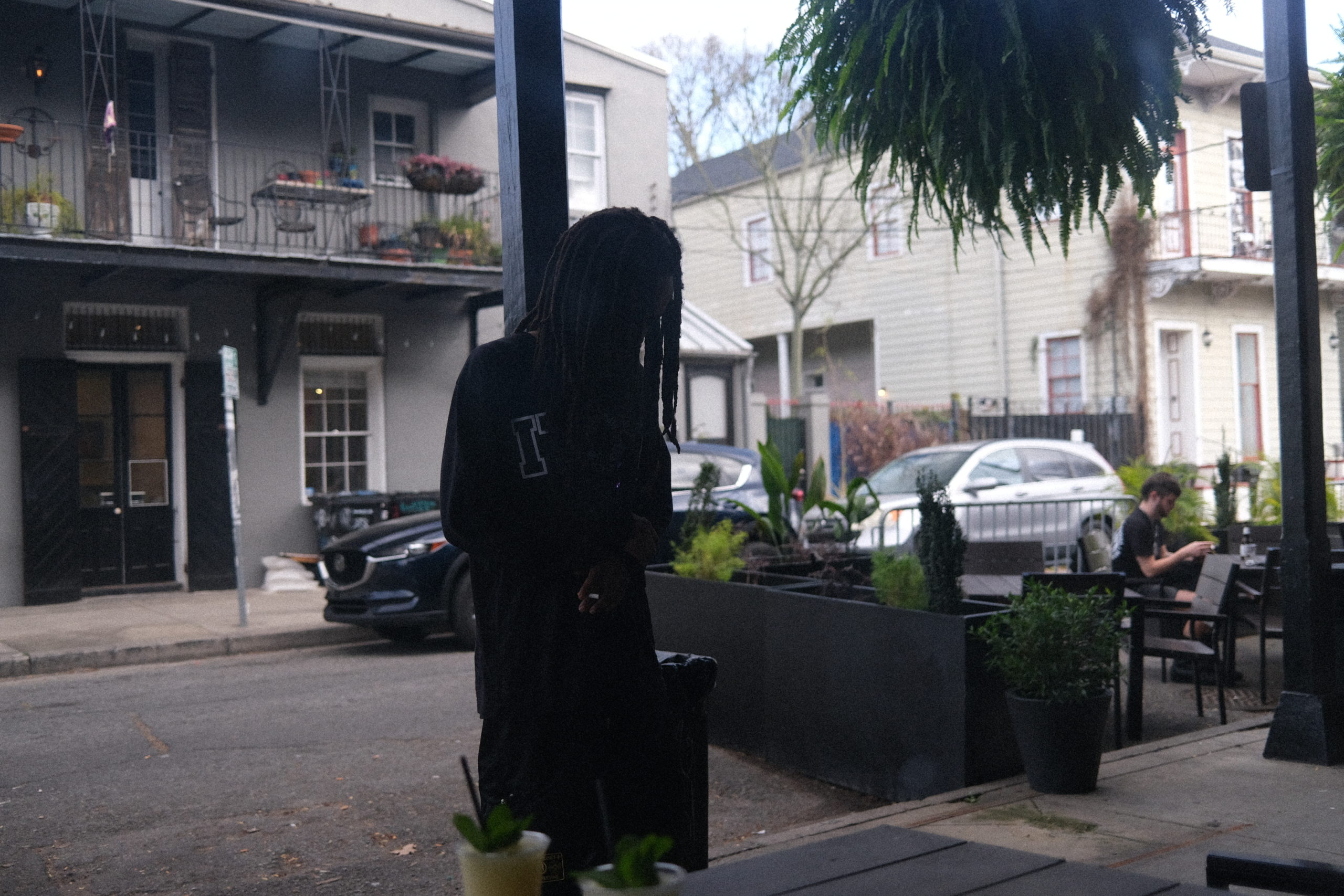
COATES: Of course.
KGOSITSILE: Billy Woods?
COATES: [Laughs] Yeah, I saw that. When I was at Howard University–it’s an interesting story, I actually have been wanting to write about this.
KGOSITSILE: Bro, please do. It’s about time. I don’t get that song.
COATES: He would just come through. When I heard it [Billy Woods’ lyric in the song “Western Education is Forbidden” that calls out Coates], I was like, “I can’t quite get with this.” [Both laugh] But you know what, the song is actually a statement about art, Thebe, and I have learned to be more generous with artists. Like, the fact that you ain’t get it the first time you heard it—
KGOSITSILE: It’s like coffee. The first time I tried coffee I said, “Get this the fuck outta here.” But you get older, and you need it.
COATES: And you gotta give art time! I’m like that with Co Flow. Probably the most influential song for me as a kid was “It Takes A Nation of Millions To Hold Us Back” [by Public Enemy], and the first time I heard it I was like, “What is this?” The production was so chaotic and discordant. But I listened to it, listened to it, listened to it.
KGOSITSILE: And then you fit in with it. People try to make art fit around them, but you’re supposed to bend yourself to the art.
COATES: That’s right, there’s an active extension that has to happen.
KGOSITSILE: You have to reach out, for sure. Art is not like candy, it hurts. I had that experience with jazz when I was younger. I grew up in a jazz house, but there was some that was too free for a goddamn eight year old. I was like, “Turn this shit off right now. What the fuck is going on.” It actually made me feel weird. Then you get older, and the world has made you feel weird—like racism or whatever your experience is—and then you’re like, “Oh, this resonates with me.”
COATES: I think sometimes art is waiting for you. You didn’t need it at eight, but you can have your own fully formed relationship with it now.
KGOSITSILE: I had siblings, but I was my mom’s only kid, so I was the only child in the house. There were big bookshelves filled with music theory, shelves of movies, all this heavy shit. I remember as a kid and being attracted to the covers, but everything inside was like, “You gotta be older.”
COATES: But being exposed to that, at a young age, do you think it stretched you a little bit?
KGOSITSILE: Absolutely, because it created a thirst. I knew that, as soon as I was old enough, I’d be on all of that shit. It’s the caged dog theory, all you wanna do is get out. People would be like, “You can’t do that” and I’d be like, “Okay, now I’m about to do that as soon as possible” It’s a genius way of getting kids into something—you show ‘em the thing and then you’re like, “Hold on, you’re gonna need an ID for that.” Then kids are like, “Ohh, okay. I’ll get a fake one today.”
COATES: But the cycle repeats, ‘cause now it’s you saying “Hold on.”
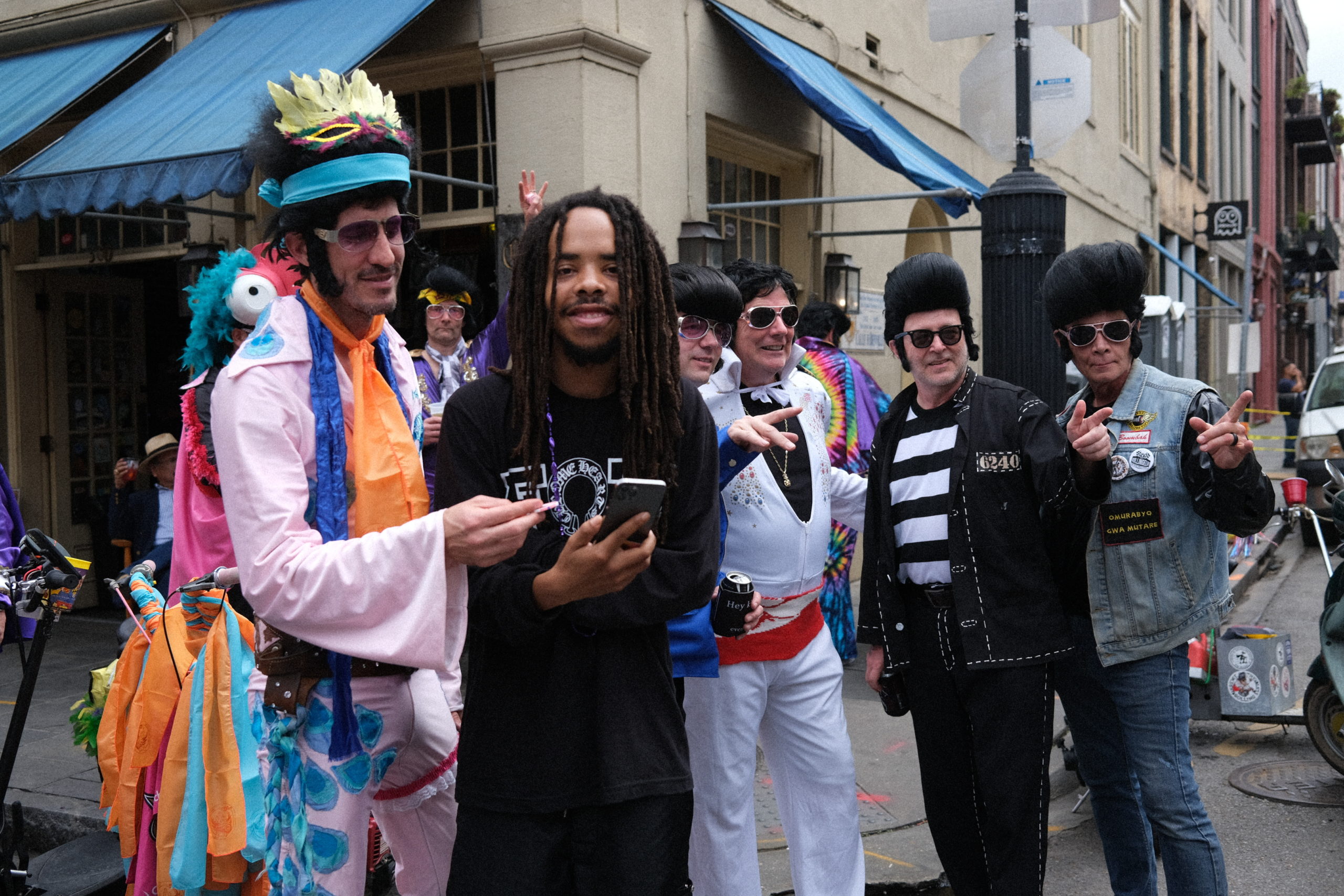
KGOSITSILE: I understand so much more about my father now and his position.
COATES: I just wanna pause for a second. When I was younger, I thought I was going to be a poet, and I used to read your dad [the South African poet Keorapetse Kgositsile, also known as Bra Willie] when I was at Howard. He was one of the Black Arts Movement guys that I studied.
KGOSITSILE: I was already knowin’, man! Billy Woods met my father in Tanzania when he was 11. We’re gonna talk about this later, but our shit is six degrees for real.
COATES: When I heard you—I mean obviously I’m a huge fan, because I like lyrically-driven shit. You’ve got your own identity, but when folks told me who your mom [Cheryl Harris, the critical race theorist] and dad were, I was like, “Damn! Really?!”
KGOSITSILE: I have what I call a cultural trust fund, you know? It’s not money, it’s art and poetry. When you’re loaded up with arts and culture in the home, you’re gonna do something creative with your life. Through my parents, I bore witness to how to age within your craft—they tell you that rap is such a young people thing, and that you’re supposed to die when you’re young and attractive, ‘cause Black death sells like shit. Art imitates life, and art is for sale, so what’s for sale is us dying—dying young—and rap is bound to that a little bit. JAY-Z and Jay Electronica have a song called “Shiny Suit Theory,” that’s all about how crazy it is to be alive and thriving at 40. I just went to the Museum of Popular Culture, and they have all Tupac’s notebooks. There was shit in there from when he was young, like 18, and it said, “I’m already halfway through with my life.” C’mon bruh, that’s terrible. I was like, “Yo just burn my shit, no ones looking through my fuckin’ notes.” The weird thoughts, the pages you cried on, I didn’t need to see that.
COATES: It was only when I turned 25 that I understood how young Tupac and Biggie really were when they died, and how terrible it is.
KGOSITSILE: That’s what I said! I swear to god at 28 I feel like I made it, because I’m out of the fuckin’ club. I started making music when I was 16, and everyone was like, “He’s so young!” I hated that, I always wanted to be older. Maybe ‘cause I had old parents. I was always like, “I’m trying to get old!”
COATES: This is one of the conversations I always have with my son. You don’t realize that there’s a ridiculous amount of life after your 20s, so don’t reduce yourself to this period.
KGOSITSILE: It’s like a second adolescence. I’m about to turn 30 and I feel like I’m going through puberty again.
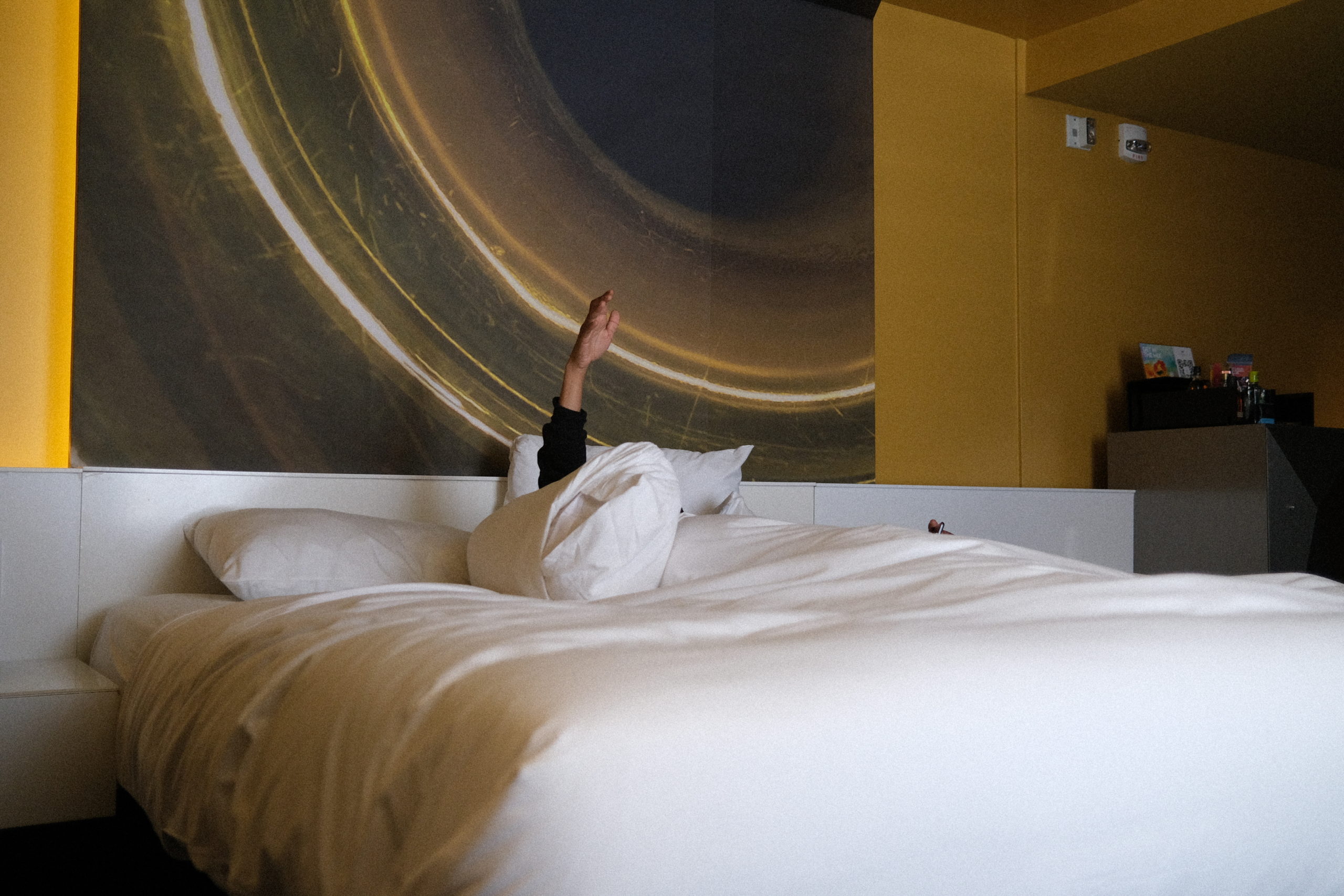
COATES: I relate to that!
KGOSITSILE: It’s beautiful though. All that means is that puberty is another word for transformation. You gotta keep transforming in life. Snakes shed their skin.
COATES: You’ll be 44 when your son is 18, and then it’ll happen again.
KGOSITSILE: I’m gonna be honest, I ain’t trying to be doing too much when I’m 44. [Both laugh]
COATES: It’s funny, a lot of my peers had kids a lot later. So I did that hands-on parenting early, and when I looked out at the world again, I was 42 I was like, “What the hell?” I went into a hole in my twenties, and then I came back out like, “Oh shit! The world’s here!”
KGOSITSILE: That’s the whole African thing, like my pops never stopped changing and living his life. He was not apologetic about that either. He’d be like, “Do you have all your limbs? Have you eaten? You’re good.” But what I want to do, more than my pops did, is check in for real. One thing I did appreciate is the confidence that he had. He was like, “You’re you, bro, swim! You can’t drown!” And I feel that with my son now. This dude is like Superman! Even though I couldn’t see that power in myself when I was younger, I see it in him now, and it’s like watching a version of myself.
COATES: I really relate to that.
KGOSITSILE: Can we link outside of Interview?
COATES: The easiest way to do it is through Samori.Just hit him up and he’ll give you my info.
KGOSITSILE: I can’t tell him that this just happened.



